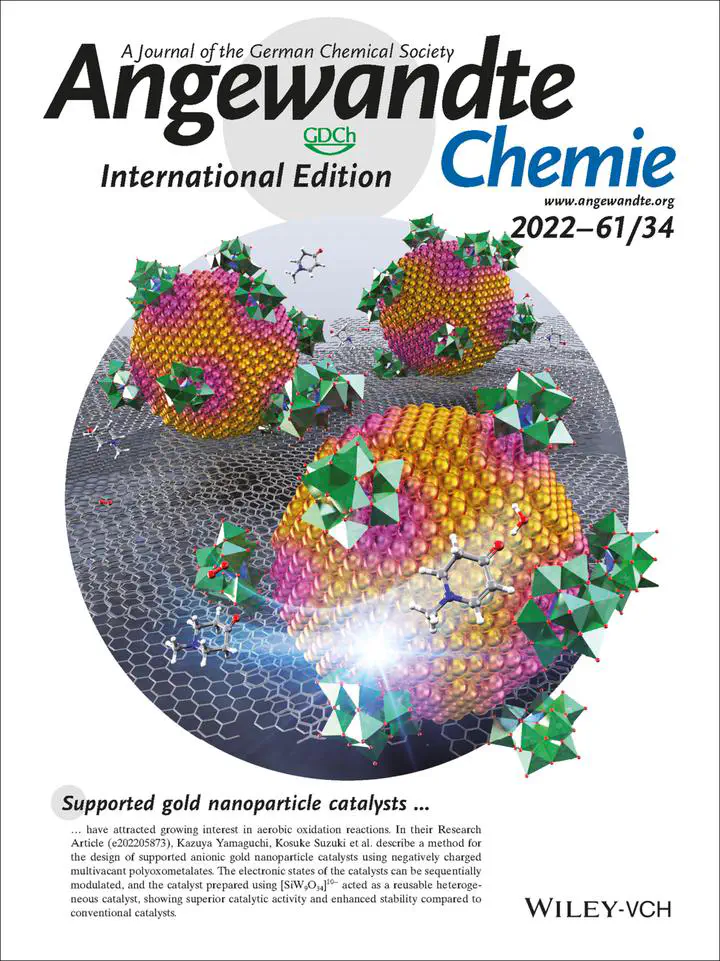Supported Anionic Gold Nanoparticle Catalysts Modified Using Highly Negatively Charged Multivacant Polyoxometalates
 Image credit: Wiley
Image credit: WileyAbstract
Although supported anionic gold nanoparticle catalysts have been theoretically investigated for their efficacy in activating O2 in aerobic oxidation reactions, limited studies have been reported due to the difficulty of designing these catalysts. Herein, we developed a feasible method for preparing supported anionic gold nanoparticle catalysts using multivacant lacunary polyoxometalates with high negative charges. We confirmed the strong and robust electronic interaction between gold nanoparticles and multivacant lacunary polyoxometalates, and the electronic states of the supported gold nanoparticle catalysts can be sequentially modulated. Particularly, the catalyst prepared using [SiW9O34]10− acted as an efficient reusable heterogeneous catalyst, showing superior catalytic performance for the oxidative dehydrogenation of piperidone derivatives to the corresponding enaminones and remarkably higher stability than supported gold nanoparticle catalysts without this modification.